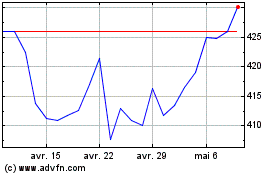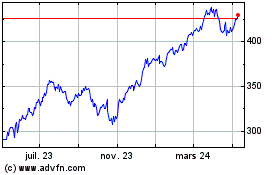Firm adds Columbia U.S. High Yield ETF (NJNK)
and Columbia Short Duration High Yield ETF (HYSD) to its ETF range
amidst rising investor interest in active ETFs
Columbia Threadneedle Investments today announced the expansion
of its exchange-traded fund (ETF) offerings with the launch of two
actively managed, fully-transparent fixed income ETFs: the Columbia
U.S. High Yield ETF (NYSE Arca: NJNK) and the Columbia Short
Duration High Yield ETF (NYSE Arca: HYSD). Both ETFs draw on
Columbia Threadneedle’s extensive high yield capabilities and are
designed to provide investors and allocators with compelling
investment options when building portfolios. Launching these
strategies as ETFs addresses an increasing market demand for high
current income in a low-cost, tax-efficient structure.
Columbia Threadneedle’s fixed income team is made up of more
than 180 professionals managing over $210 billion in fixed income
assets.1 Under that umbrella, the high yield team has experience
managing a broad offering across the high yield spectrum, and these
two new ETFs will benefit from their expertise. NJNK is managed by
Daniel DeYoung, a high yield senior portfolio manager and David
Janssen, a multi-sector fixed income portfolio manager. HYSD is
managed by Brett Kaufman and Kris Keller, senior portfolio managers
on the high yield team.
“We believe that high yield bonds have an important role to play
in a diversified portfolio and that that investors should consider
making a long-term allocation to the asset class to capture the
high levels of income that it can offer,” says Dan DeYoung, senior
portfolio manager, High Yield Fixed Income. “With potential cuts to
the federal funds rate on the horizon, the benefits of thoughtful
exposure to high yield are compelling.”
Marc Zeitoun, Head of North America Product and Business
Intelligence, said: “Our investment teams leverage decades of
experience in fundamental research, bottom-up credit selection and
risk management to build high yield portfolios aimed at generating
strong risk-adjusted returns while intentionally avoiding some of
the riskiest segments of the high yield market. This commitment to
original, independent research is central to our investment
philosophy and how we deliver value to investors. With NJNK and
HYSD, we expect to provide clients with investment solutions that
offer greater potential for alpha relative to indexed benchmarks,
in a wrapper that emphasizes tax efficiency and low cost. These
important additions to our ETF range reflect our commitment to
offering investors greater choice in how they access our investment
strategies.”
Fund Name
Ticker
Performance Benchmark
Portfolio Managers
Columbia U.S. High Yield ETF
NJNK
Bloomberg U.S. Corporate High Yield
Index
Dan DeYoung
David Janssen
Columbia Short Duration High Yield
ETF
HYSD
ICE BofA 0-5 Year BB-B U.S. High Yield
Constrained Index
Brett Kaufman
Kris Keller
NJNK is a fully transparent, rules-based ETF with a
discretionary active overlay designed to pursue strong risk
adjusted returns through varying market environments. The Fund
seeks to produce high current income with a strategy that focuses
on reducing exposure to the lowest quality, highest risk issuers
while also avoiding higher- rated yet low-yielding securities.
HYSD is a fully transparent, actively managed ETF that focuses
on short duration high yield corporate bonds and floating rate
loans. The short duration high yield strategy aims to generate
alpha comparable to other high yield portfolios managed by the
team, powered by rigorous fundamental credit research. The process
strongly emphasizes risk management due to high yield’s
asymmetrical risk profile and is designed to limit downside risk.
The ETF will leverage the firm’s institutional Short Duration High
Yield separate account strategy that has been in place for nearly
10 years.
NJNK and HYSD are the latest additions to Columbia
Threadneedle’s actively managed ETF offerings, which also include
the Columbia U.S Equity Income ETF (NYSE Arca: EQIN), Columbia
International Equity Income ETF (NYSE Arca: INEQ) and the Columbia
Semiconductor and Technology ETF (NYSE Arca: SEMI). With the
addition of these two new actively managed, fully transparent ETFs,
Columbia Threadneedle now offers 14 ETFs across the active/indexed
spectrum.
About Columbia Threadneedle Investments
Columbia Threadneedle Investments is a leading global asset
manager that provides a broad range of investment strategies and
solutions for individual, institutional and corporate clients
around the world. With more than 2,500 people, including over 650
investment professionals based in North America, Europe and Asia,
we manage $642 billion of assets across developed and emerging
market equities, fixed income, asset allocation solutions and
alternatives.2
Columbia Threadneedle Investments is the global asset management
group of Ameriprise Financial, Inc. (NYSE: AMP). For more
information, please visit columbiathreadneedleus.com.
Columbia Threadneedle Investments (Columbia Threadneedle) is the
global brand name of the Columbia and Threadneedle group of
companies.
1, 2 As of June 30, 2024
The views expressed are as of the date given, may change as
market or other conditions change and may differ from views
expressed by other Columbia Management Investment Advisers, LLC
(CMIA) associates or affiliates. Actual investments or investment
decisions made by CMIA and its affiliates, whether for its own
account or on behalf of clients, may not necessarily reflect the
views expressed. This information is not intended to provide
investment advice and does not take into consideration individual
investor circumstances. Investment decisions should always be made
based on an investor's specific financial needs, objectives, goals,
time horizon and risk tolerance. Asset classes described may not be
appropriate for all investors. Past performance does not guarantee
future results, and no forecast should be considered a guarantee
either. Since economic and market conditions change frequently,
there can be no assurance that the trends described here will
continue or that any forecasts are accurate.
Investors should carefully consider the investment
objectives, risks, charges and expenses of the Funds before
investing. To obtain a prospectus containing this and other
important information, please visit
https://www.columbiathreadneedleus.com/etf to view or
download a prospectus. Read the prospectus carefully before
investing.
Columbia Management Investment Advisers, LLC serves as the
investment manager to the ETFs. The ETFs are distributed by ALPS
Distributors, Inc., which is not affiliated with Columbia
Management Investment Advisers, LLC, Columbia Management Investment
Distributors, Inc. or its parent company Ameriprise Financial,
Inc.
General ETF Risks
There are risks involved with investing in ETFs, including the
loss of the principal amount that you invest.
ETF shares are bought and sold throughout the trading day at
their market price, not their NAV, on the exchange on which they
are listed. ETF shares may trade in the market at a premium or
discount to their NAV. A financial intermediary (such as a broker)
may charge a commission to execute a transaction in ETF shares, and
an investor also may incur the cost of the spread between the price
at which a dealer will buy ETF shares and the somewhat higher price
at which a dealer will sell ETF shares.
ETF shares are not individually redeemable from an ETF. Only
market makers or Authorized Participants may trade directly with an
ETF, typically in large blocks of shares, as disclosed in each
Fund’s prospectus.
Fund Investment Risks
Due to its active management, the Fund could underperform
its benchmark index and/or other funds with similar investment
objectives and/or strategies.
Fixed income securities Involve interest rate, credit,
inflation, illiquidity, and reinvestment risks.
Interest rate risk is the risk that fixed income
securities will decline in value because of changes in interest
rates. Generally, the value of debt securities falls as interest
rates rise. Fixed income securities differ in their sensitivities
to changes in interest rates. Fixed income securities with longer
effective durations tend to be more sensitive to changes in
interest rates, usually making them more volatile than securities
with shorter effective durations. Effective duration is determined
by a number of factors including coupon rate, whether the coupon is
fixed or floating, time to maturity, call or put features, and
various repayment features.
Credit risk is the risk that the value of debt
instruments may decline if the borrower or the issuer thereof
defaults or otherwise becomes unable or unwilling, or is perceived
to be unable or unwilling, to honor its financial obligations, such
as making payments to the Fund when due. Credit rating agencies
assign credit ratings to certain debt instruments to indicate their
credit risk. A rating downgrade by such agencies can negatively
impact the value of such instruments. Lower-rated or unrated
instruments held by the Fund may present increased credit risk as
compared to higher-rated instruments. Non-investment grade debt
instruments may be subject to greater price fluctuations and are
more likely to experience a default than investment grade debt
instruments and therefore may expose the Fund to increased credit
risk.
Below investment-grade securities, or “junk bonds,” are
more likely to pose a credit risk, as the issuers of these
securities are more likely to have problems making interest and
principal payments than issuers of higher-rated securities.
Lower-rated securities may be more susceptible to real or perceived
adverse economic and competitive industry conditions than
higher-grade securities, and prices of these securities may be more
sensitive to adverse economic downturns or individual corporate
developments. If the issuer of the securities defaults, the ETF may
incur additional expenses to seek recovery.
Floating rate loans typically present greater risk than
other fixed-income investments as they are generally subject to
legal or contractual resale restrictions, may trade less frequently
and experience value impairments during liquidation.
Foreign investments subject the fund to risks, including
political, economic, market, social and others within a particular
country, as well as to currency instabilities and less stringent
financial and accounting standards generally applicable to U.S.
issuers.
As a non-diversified fund, holding fewer investments
increases the risk that a change in the value of any one investment
could affect the overall value of the Fund more than it would
affect that of a diversified fund holding a greater number of
investments.
Although the Fund’s shares are listed on an exchange,
there can be no assurance that an active, liquid or otherwise
orderly trading market for shares will be established or
maintained. The Fund may have portfolio turnover, which may cause
an adverse cost impact.
Investing involves risks, including the risk of loss of
principal.
Market risk may affect a single issuer, sector of the
economy, industry, or the market as a whole.
Although the Fund’s shares are listed on an exchange,
there can be no assurance that an active, liquid or otherwise
orderly trading market for shares will be established or
maintained. The Fund may have portfolio turnover, which may
cause an adverse cost impact.
This fund is new and has limited operating history.
AdTrax: CTNA7001132.1-RUSH ALPS: CET002183
© 2024 Columbia Management Investment Advisers, LLC. All rights
reserved.
View source
version on businesswire.com: https://www.businesswire.com/news/home/20240912370996/en/
Meghan Shields Meghan.Shields@columbiathreadneedle.com
617.451.0739
Ameriprise Financial (NYSE:AMP)
Graphique Historique de l'Action
De Déc 2024 à Jan 2025

Ameriprise Financial (NYSE:AMP)
Graphique Historique de l'Action
De Jan 2024 à Jan 2025
